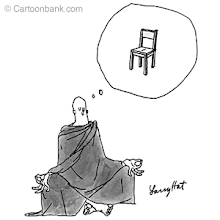By Emily Langer, Published: December 4
Bill Tapia, a jazz guitarist who was in his 90s when he returned to the ukulele he had played as a young man and helped revive the iconic instrument of his native Hawaii, died Dec. 2 at his home in Westminster, Calif. He was 103.
Pat Enos, a friend and caregiver, confirmed Mr. Tapia’s death and said Sunday that the cause had not been determined.

(Family Photo)
Bill Tapia, a jazz guitarist who was in his 90s when he returned to the ukulele he had played as a young man and helped revive the iconic instrument of his native Hawaii, died Dec. 2 at his home in Westminster, Calif. He was 103.
Pat Enos, a friend and caregiver, confirmed Mr. Tapia’s death and said Sunday that the cause had not been determined.

(Family Photo)
- Bill Tapia continued to play ukulele numbers behind his neck beyond his 100th birthday.
When Mr. Tapia was born, the ukulele — a late-19th-century innovation by Portuguese immigrants — had existed on the Hawaiian islands for about three decades.
He lived long enough to see the instrument become a mainland fascination in the 1920s, fade in popularity for decades and rise again in recent years with the success of pop hits such as Israel “Iz” Kamakawiwo’ole’s Hawaiian arrangement of “Somewhere Over the Rainbow.”
At many key turns in the instrument’s story, Mr. Tapia was there to play and to promote it.
“I was brought up with the ukulele,” Mr. Tapia told the Los Angeles Times. “I guess I’ll end with a ukulele.”
Byron Yasui, a retired University of Hawaii music professor who successfully nominated Mr. Tapia for the Ukulele Hall of Fame in 2004, said Mr. Tapia was one of the first musicians to play jazz standards on the instrument.
While other ukulele players strummed “Lady of Spain” and “Granada,” Yasui said, Mr. Tapia played songs such as “Embraceable You,” “Peg o’ My Heart” and “Slow Boat to China” — in their original keys.
Mr. Tapia grew up in Honolulu just as the ukulele and jazz were coming of age. He lived about 30 steps down the dirt lane from Manuel Nunes, one of the Portuguese artisans who started making ukuleles in Hawaii, Yasui said.
Enchanted, Mr. Tapia began playing the instrument at 7. He asked Nunes for a ukulele of his own; they settled on the price of 75 cents.
By all accounts, Mr. Tapia was a child prodigy. He began playing on the streets of Honolulu, where his trademark stunt — playing “The Stars and Stripes Forever” while holding the ukulele behind his neck — proved to be a barnburner.
At 12, he dropped out of school to join a vaudeville group. His success there led to other gigs, including at the Royal Hawaiian hotel in Honolulu. There, he picked up extra money as a driver, stopping to serenade his guests, Venetian gondolier-style, with a song.
In those years, the islands were a popular travel destination for rich American actors, some of whom took ukulele lessons as a diversion. Mr. Tapia’s students reportedly included Shirley Temple, Clark Gable, Jimmy Durante and Arthur Godfrey, who made the ukulele a mainstay of his radio and television programs.
Mr. Tapia longed to go to the mainland, however, and as a young man he went to California. There he found that ukulele players were not in high demand, so he began playing the guitar.
By his telling, he performed in “gambling joints, bootleg joints, prostitute joints” and “the best places in the world.” He played alongside artists such as Charlie Barnet, Louis Amstrong, Fats Waller, Billie Holiday and Bing Crosby.
Mr. Tapia came back to the ukulele, almost by chance, when he was in his 90s. He was in a California music store when he picked up the instrument that for years he had played only at home. The people in the store were so impressed by his virtuosity that they, along with friends, pushed him to start playing again.
He was not averse to the idea. For him, the ukulele had the “air of something simple and nostalgic,” he told the Orange County Register. Mr. Tapia began his second career, which featured four records, the last of which was released this year. His toured nationally and internationally, with festival performances drawing thousands. His story was detailed in a documentary, “To You Sweetheart, Aloha.”
William Tapia was born Jan. 1, 1908, in Honolulu. Among his first listeners were sailors stationed at Pearl Harbor during World War I. During the World War II, he performed for GIs, including in the so-called “blackout ballrooms,” where lights were turned out to prevent an enemy attack.
Mr. Tapia credited his return to the ukulele with restoring a piece of his happiness after the deaths of his wife of 64 years, the former Barbara Perreira, and their daughter Cleo. He told the Los Angeles Times that the instrument helped him “forget a little.”
Survivors include several grandchildren, great-grandchildren and great-great-grandchildren.
Beyond his 100th birthday, Mr. Tapia continued to play numbers with the ukulele behind his neck.
Source:
http://www.washingtonpost.com/local/obituaries/jazzs-bill-tapia-who-helped-revive-hawaiis-iconic-ukulele-dies-at-103/2011/12/04/gIQABkqHUO_story.html
 Wikimedia Commons has media related to: Bill Tapia
Wikimedia Commons has media related to: Bill Tapia
Interview with Uncle Bill Tapia - Part I
- Free internet podcast featuring interview with Uncle Bill Tapia (part 1).
Interview with Uncle Bill Tapia - Part II
- Free internet podcast featuring interview with Uncle Bill Tapia (part 2).
Uncle Bill Tapia Official Home Page
Podcast interview featuring Uncle Bill's live music and life story.
Brief article on the life of Bill Tapia
Award-winning PBS documentary film about Bill Tapia: "To You Sweetheart, Aloha"
^ "Ukulele legend Bill Tapia dies at 103 - Entertainment - Music - TODAY.com"
. Today

When Mr. Tapia was born, the ukulele — a late-19th-century innovation by Portuguese immigrants — had existed on the Hawaiian islands for about three decades.
He lived long enough to see the instrument become a mainland fascination in the 1920s, fade in popularity for decades and rise again in recent years with the success of pop hits such as Israel “Iz” Kamakawiwo’ole’s Hawaiian arrangement of “Somewhere Over the Rainbow.”
At many key turns in the instrument’s story, Mr. Tapia was there to play and to promote it.
“I was brought up with the ukulele,” Mr. Tapia told the Los Angeles Times. “I guess I’ll end with a ukulele.”
Byron Yasui, a retired University of Hawaii music professor who successfully nominated Mr. Tapia for the Ukulele Hall of Fame in 2004, said Mr. Tapia was one of the first musicians to play jazz standards on the instrument.
While other ukulele players strummed “Lady of Spain” and “Granada,” Yasui said, Mr. Tapia played songs such as “Embraceable You,” “Peg o’ My Heart” and “Slow Boat to China” — in their original keys.
Mr. Tapia grew up in Honolulu just as the ukulele and jazz were coming of age. He lived about 30 steps down the dirt lane from Manuel Nunes, one of the Portuguese artisans who started making ukuleles in Hawaii, Yasui said.
Enchanted, Mr. Tapia began playing the instrument at 7. He asked Nunes for a ukulele of his own; they settled on the price of 75 cents.
By all accounts, Mr. Tapia was a child prodigy. He began playing on the streets of Honolulu, where his trademark stunt — playing “The Stars and Stripes Forever” while holding the ukulele behind his neck — proved to be a barnburner.
At 12, he dropped out of school to join a vaudeville group. His success there led to other gigs, including at the Royal Hawaiian hotel in Honolulu. There, he picked up extra money as a driver, stopping to serenade his guests, Venetian gondolier-style, with a song.
In those years, the islands were a popular travel destination for rich American actors, some of whom took ukulele lessons as a diversion. Mr. Tapia’s students reportedly included Shirley Temple, Clark Gable, Jimmy Durante and Arthur Godfrey, who made the ukulele a mainstay of his radio and television programs.
Mr. Tapia longed to go to the mainland, however, and as a young man he went to California. There he found that ukulele players were not in high demand, so he began playing the guitar.
By his telling, he performed in “gambling joints, bootleg joints, prostitute joints” and “the best places in the world.” He played alongside artists such as Charlie Barnet, Louis Amstrong, Fats Waller, Billie Holiday and Bing Crosby.
Mr. Tapia came back to the ukulele, almost by chance, when he was in his 90s. He was in a California music store when he picked up the instrument that for years he had played only at home. The people in the store were so impressed by his virtuosity that they, along with friends, pushed him to start playing again.
He was not averse to the idea. For him, the ukulele had the “air of something simple and nostalgic,” he told the Orange County Register. Mr. Tapia began his second career, which featured four records, the last of which was released this year. His toured nationally and internationally, with festival performances drawing thousands. His story was detailed in a documentary, “To You Sweetheart, Aloha.”
William Tapia was born Jan. 1, 1908, in Honolulu. Among his first listeners were sailors stationed at Pearl Harbor during World War I. During the World War II, he performed for GIs, including in the so-called “blackout ballrooms,” where lights were turned out to prevent an enemy attack.
Mr. Tapia credited his return to the ukulele with restoring a piece of his happiness after the deaths of his wife of 64 years, the former Barbara Perreira, and their daughter Cleo. He told the Los Angeles Times that the instrument helped him “forget a little.”
Survivors include several grandchildren, great-grandchildren and great-great-grandchildren.
Beyond his 100th birthday, Mr. Tapia continued to play numbers with the ukulele behind his neck.
Source:
http://www.washingtonpost.com/local/obituaries/jazzs-bill-tapia-who-helped-revive-hawaiis-iconic-ukulele-dies-at-103/2011/12/04/gIQABkqHUO_story.html
 Wikimedia Commons has media related to: Bill Tapia
Wikimedia Commons has media related to: Bill TapiaInterview with Uncle Bill Tapia - Part I
- Free internet podcast featuring interview with Uncle Bill Tapia (part 1).
Interview with Uncle Bill Tapia - Part II
- Free internet podcast featuring interview with Uncle Bill Tapia (part 2).
Uncle Bill Tapia Official Home Page
Podcast interview featuring Uncle Bill's live music and life story.
Brief article on the life of Bill Tapia
Award-winning PBS documentary film about Bill Tapia: "To You Sweetheart, Aloha"
^ "Ukulele legend Bill Tapia dies at 103 - Entertainment - Music - TODAY.com"
. Today







No comments:
Post a Comment